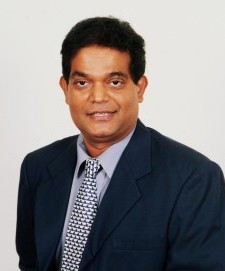
“South Africa is in a very asymmetrical position with regards to its neighbours, but this doesn’t need to be fatal. It can be managed if South Africa adopts a communitarian foreign policy and exercising strength by providing the public good of security without being too interventionist,” said the Visiting Nelson Mandela Professor International Relations, Prof Amitav Acharya, who recently shared his views on South Africa’s role in relation to other emerging powers.
Prof Acharya’s paper entitled: “Emerging Powers and Global Governance: What Role for South Africa?”. He unpacked the current shift away from a euro-centric world and foregrounded the role of emerging markets in the emerging global powers.
Emphasising the tension between global aspirations and regional legitimacy, Prof Acharya said some states make the mistake of aspiring to be a global player, and in doing so compromise their relationships with their neighbours.
“Some states make the mistake of thinking they can leapfrog onto another power level if they join up with bigger forces but their relationships with their neighbours often become shaky,” he said.
This gives rise to imbalances and problems, because without regional legitimacy, states cannot fully realise their global aspirations.
As such, the tension between pursuing multilateral interests in Africa and promoting democracy and human rights on the continent can often result in stark contrast, he said, citing Zimbabwe as an example.
“You have to be very careful. Some leaders make big statements about protecting democracy, but if they don’t follow through on them they look very bad.”
In its role as a leading African state and an emerging global power, South Africa assumes a dual personality, Prof Acharya said. “It is part of the global north, north centric group which promote universal, western values but it also belongs to the south centric approach, which operates in a very realist African context.”
To this end Prof Acharya said it is imperative that South Africa chooses which identity it wants to pursue. “This state has to make up its mind whether it wants to play the North/South role or how to successfully merge the two. Being a member of the emerging powers accentuates the polarisation between the two identities,” he said, adding that regional legitimacy is key to South Africa’s success in either regard.
Prof Acharya is a Visiting Nelson Mandela Professor International Relations, Department of Political and International Studies at Rhodes University. His previous appointments include Professor of Global Governance at the University of Bristol, Professor at York University, Toronto, Fellow of the Harvard University Asia Center, and Fellow of Harvard's John F. Kennedy School of Government. He directs Transnational Challenges and Emerging Nations Dialogue (TRANSCEND), a global network on universities and think-tanks on multilateralism and the governance of transnational issues.
He is currently a professor of International Relations and the UNESCO Chair in Transnational Challenges and Governance at the School of International Service, American University, Washington, DC.
Among Professor Acharya's major works are Constructing a Security Community in Southeast Asia (Routledge 2001, 2009); Whose Ideas Matter? (Cornell, 2009); and The Making of Southeast Asia (ISEAS, and Cornell, 2012).
He has published articles in International Organization, International Security, International Studies Quarterly, and World Politics, which are the top four academic journals in the field of international relations, as well as in Journal of Asian Studies, the foremost journal in Asian studies.
By Sarah-Jane Bradfield
Photo: supplied.
